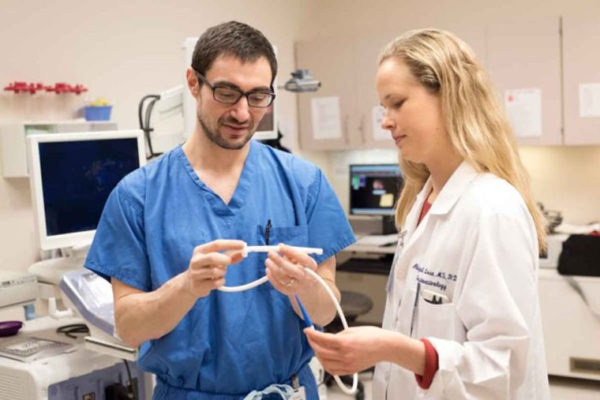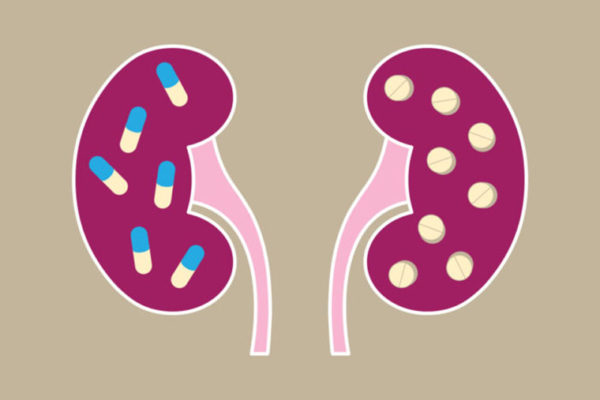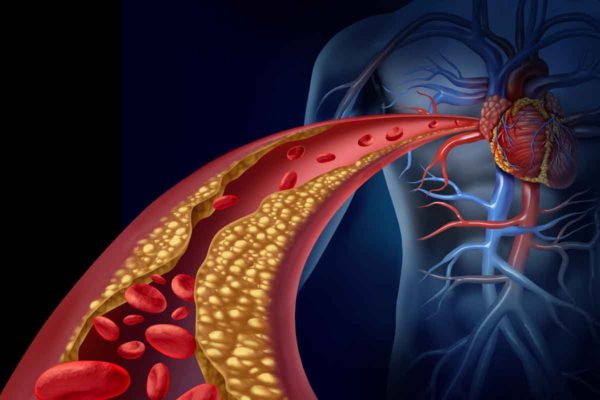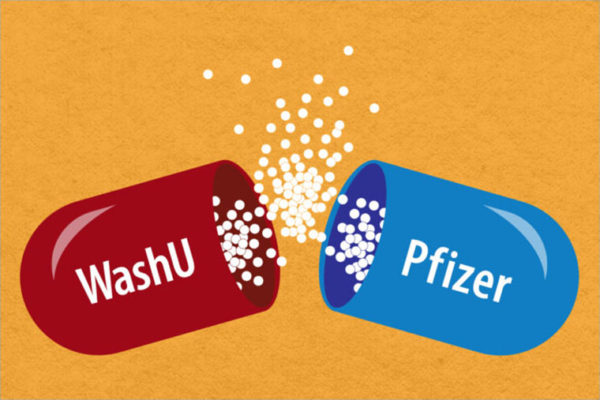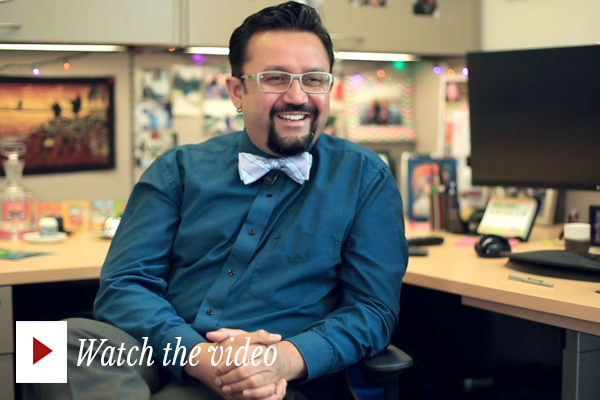Key collaborators
Jeff Gordon’s influence in the race to understand the human gut microbiome extends to the many students he has mentored at the Washington University School of Medicine. Here is a small sampling of his former students and postdocs, and where they are now.
Sporting a new look
At the Gary M. Sumers Recreation Center, the university encourages healthy living through
state-of-the-art fitness and recreation facilities.
Improving lives for seniors
Marylen Mann is the founder of OASIS a nationwide program to help seniors remain active and engaged in their communities even after retirement.
New weight-loss therapy rids body of food before digestion
A new weight-loss therapy offers significantly overweight people a means to rid their bodies of some of what they eat before excess calories can be absorbed. Called aspiration therapy, the FDA-approved, nonsurgical therapy was developed by researchers at the School of Medicine and is available at Barnes-Jewish West County Hospital.
Common heart ailment target of new WashU Engineering research
More than 14 million Americans have an irregular heartbeat that predisposes them to sudden death. New research by a biomedical engineer at Washington University in St. Louis seeks to understand the issue at the molecular level with the goal of improving therapies.
Popular heartburn drugs linked to gradual yet ‘silent’ kidney damage
Taking popular heartburn medication for prolonged periods may lead to serious kidney damage, even in people who show no signs of kidney problems, according to researchers at the School of Medicine and the Veterans Affairs St. Louis Health Care System.
Study reveals ways to improve outcomes, reduce costs for angioplasty
Hospitals can improve patient care and reduce costs associated with coronary angioplasty if cardiologists perform more procedures through an artery in the wrist and if they discharge patients on the same day, finds a new study led by the School of Medicine.
New collaboration with Pfizer aimed at speeding drug discovery
Washington University in St. Louis is collaborating with the biopharmaceutical company Pfizer Inc. on research aimed at speeding the development of new drugs. The university is the first academic institution in the Midwest to join Pfizer’s Centers for Therapeutic Innovation’s (CTI) collaborative network.
New guidance developed for children hospitalized with mild head trauma
In new research, pediatric neurosurgeons at the School of Medicine developed a risk scoring system intended to help determine whether a child with mild traumatic brain injury and an abnormal CT scan can be monitored safely in a general hospital ward or requires the increased surveillance of an intensive care unit (ICU).
Three questions with Gautam Dantas on antibiotic resistance
A microbiology professor discusses antibiotic resistance and his lab’s efforts to help physicians fight antibiotic-resistant infections.
Older Stories



